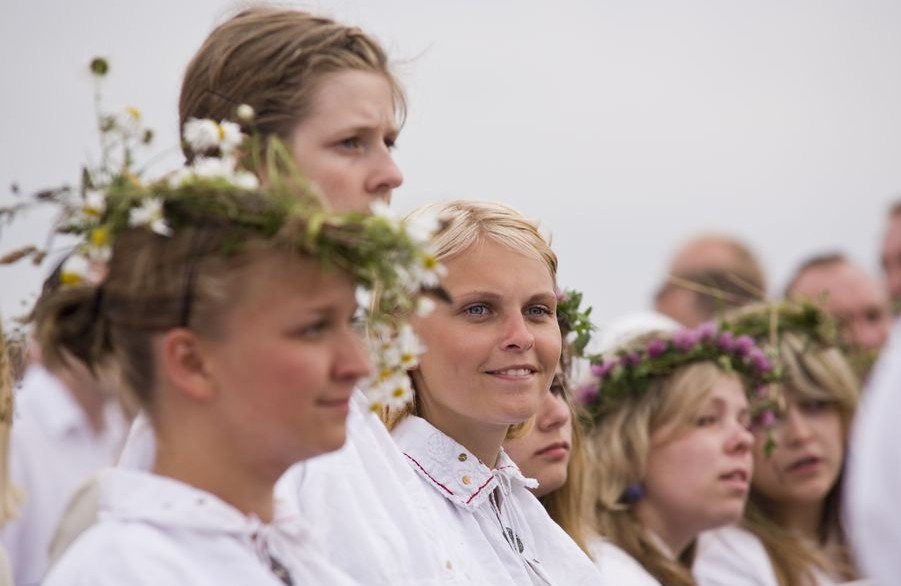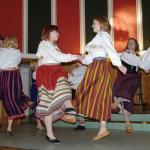Will the émigrés return? Countries between the Baltic Sea and the Black Sea, which have lost millions of their people in the past 20 years, certainly hope so.
I have just been to two ‘émigré’ events at the London School of Economics and Political Science (LSE) – one organised by its Baltic societies, another by the Polish societies of Britain’s top universities. Hundreds of students came to both, plus impressive guests from back home. The Polish event drew the deputy prime minister, Waldemar Pawlak, and a host of Polish blue-chip firms. The young diaspora at British universities is a much sought-after pool of talent.
I had a nostalgia rush, remembering my own LSE days, especially in Student Solidarity with Solidarity in 1981-82, chanting protest slogans in the cold outside the Polish embassy, and hearing Poles singing the national anthem, “Poland is not yet lost while we still live”, at a fundraiser we organised. Our main achievement, though, was a scholarship for a persecuted Polish student to come to LSE.
In those days the dilemma was sharp. “In their homeland they have no freedom and in their freedom they have no homeland” was the poignant motto of the captive nations’ diasporas during the Cold War. Now the mantra is different. It runs along the lines of “In their homeland they have no future and in their future they have no homeland”. The picture varies, of course. Thanks to budget airlines, it is possible to stay in regular touch with home – if you want. Internet radio means you can listen to your favourite station anywhere in the world. For some, expatriate life is just a pleasant career stage.
But for other migrants, attitudes are bitter or just apathetic. This seems to be especially true for the least skilled, and those from small towns or villages that have been hard-hit by the economic changes since 1989. I notice their bemused and disdainful reaction when I try to practise my Lithuanian, Polish or Slovak (and not just because of my accent and grammar). A good new British play, “Tu i teraz” (“Here and now”) by Nicola Werenowska, which has enjoyed a successful run in London, exemplifies this. The main character is an iron-willed Polish woman who has made a big success of her new life in England and tries to scrub her life of anything that reminds her of the past.
Losing such migrants permanently is a real risk. Winning them back – and the skills they have acquired – would be a big dividend. Changing economic fortunes may send some home (though for many it was poor public services and other inadequacies that made them leave). Exhortation can help too. Andrius Kubilius, a former Lithuanian prime minister, half-jokingly told his LSE audience “don’t get left behind” in the rush for good jobs back home.
But the best way of keeping hearts warm is fostering identity – and pride. For governments and embassies, that means paying close attention to the diasporas’ needs. Reducing bureaucratic barriers to return helps (removing the hassle from dual citizenship or welfare and pension systems). Consular services could be better for some countries. Political muscle can be flexed. The ‘east Europeans’ can be, if they want, a powerful bloc of voters and consumers. Politicians, media outlets or businesses that treat them badly deserve to suffer.
But governments can only do so much. The most powerful effect comes from private activity. The Estonian choir, the Polish church, the Lithuanian sports club and the Russian bookshop (to take a few London examples) are places for people to cherish their roots. When people are proud of where they come from, they are more likely to consider returning there.
I
This article first appeared on European Voice: http://www.europeanvoice.com/
The opinions in this article are those of the author.
Main photo: Kaarel Mikkin/Visit Estonia
Second photo: London Estonian Society



Many of us have lived in an overwhelming poverty and for too long have been neglected by our governments, though we were young and intelligent. So, now, after struggles to build career and succeed, we just want to enjoy life.
Yes, things might change, once. But by then, we’ll be married and with children.
I’ll be European and I don’t see anything wrong with that. But I will – most probably – never go back.
My father was one of those who had his freedom but not his homeland. He loved his country but could never return. He feared for the safety of the family he was forced to leave behind. His life was not easy, but thanks to him, his children grew up with a love of Estonia and a strong feeling for distant roots. In recent years, we have been able to visit and connect with those distant roots – close family members and cousins, some of whom had never met each other before. It has been a source of great happiness for all of us. Some have found closure, at last knowing the unknown. Some have learned about their history, family stories that were not previously spoken of. We share many similarities in personality, tastes, career and hobbies that surprised us at first but are so natural that we could have expected it. We recognised landscapes and small things and finally understood about the places to which our father loved to take us.
To Maia, and others who share her feelings, I would like to say “I hope your bitterness will ease with passing years. Tell your children about the good times and the places you loved; share with them the foods and activities you enjoyed in your country. And perhaps they, like us will some day find their distant roots and share happiness with relatives left behind.”
One potential problem for people returning to their homeland is lack of language skills for non-eastern European spouses married overseas. Using Estonian as one example, it is often difficult to get Estonian language classes for adults in an overseas setting. This affects job prospects for these non-Estonian spouses in Estonia, should the family ever decide to move there. One may be really fond of Estonia but if one’s wife or husband lacks local language skills, it is really hard to imagine that such individuals would fare well in the job market there. Additionally, most children born and schooled overseas are unlikely to possess really excellent Estonian language skills. This affects their integration into the Estonian school system and they may lose a year in the school system or have some adjustment period with poor grades. Private schools in English (or other overseas languages) may be available, but these are usually very expensive.
It would really help if overseas language courses could be improved. Probably the easiest are better online courses. The following is one example of a promising approach.
http://news.postimees.ee/1169222/ministry-launches-online-course-of-estonian-language-for-english-speakers
I agree that countries should allow people to hold as many passports as they are entitled to and that red-tape should be removed for all kinds of immigration/return. But the more crucial point is this: people from free and safe countries who are talented will go to whatever places offers them the most opportunity. They are not leaving except to find opportunity. You get what you pay for.